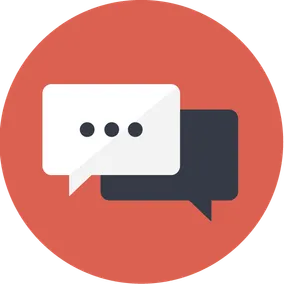Informational Interviews Don't Have to Be a Waste of Time!

Erica Licari, Former Senior Recruiter
Article Categories:
Posted on
By following these tips, your next informational interview can help you build a meaningful, long-term connection and get you the info you're looking for.
Informational interviews are an investment of time for everyone involved. But, given the right prep, they’re a worthy use of time. For prospective candidates or people looking to break into a specific industry, these conversations are a great way to get information about a company before applying, build rapport and get on a company’s radar, and learn more about specific career paths. For recruiters and other employees, these conversations can help expand your network generally and can help with long-term recruiting by getting on someone’s radar well before they’re ready to apply. How can we all prepare for these conversations more effectively so that we’re getting the most out of them?
Here are tips for how to have a successful informational call. Get the information you need, make a positive impression, and build a long-term connection.
- Do your research. You should know a bit about the company before you request a call like this. If you know you want to work at a product company, or you only want to work in a specific industry, you’re probably better served speaking to someone in that space.
- Run the call. If you requested the meeting, you should manage the conversation and time. Make sure you have a loose plan or agenda going in. A good rule of thumb is to start with introducing yourself, then ask your questions, then ask if the person you’re speaking with has questions for you.
- Come prepared with questions. If you requested the call, make sure you have several questions that can’t be quickly answered via email or the company website. The person you’re speaking with agreed to the call because they like working at Viget and they want to share more about their work with you.
- Some good questions I’ve heard:
- What’s a day in the life of [insert role] at Viget?
- What kinds of projects are you working on right now?
- What can I expect mentorship to look like?
- What is the feedback loop like at Viget?
- What can I expect out of the interview process?
- What’s a topic of discussion at Viget lately?
- Some questions I’ve heard that are easy to find on Viget’s website (don't ask these!):
- What jobs are open right now?
- How do I submit an application?
- What does Viget do?
- Ask for advice. If you’re looking at breaking into the industry, or know you want to be at an agency in 5 years, you can ask about career paths that other people at Viget have had. You can also ask about specific resources. Does the person you’re speaking with have a favorite blog, or favorite set of articles about their discipline that you could learn from?
- Try to connect. These calls are informal compared to interviews. Feel free to try to get to know the person you’re speaking with. Why do they like their job? What motivates them? What made them choose their career? Also, consider admitting to something you’re working on or acknowledging a set-back you’ve had as a way to show you’re open to having a genuine conversation.
- Don’t turn it into a job interview. If you’ve asked for an informational interview, you shouldn’t try to use it as a backdoor to the hiring process. Don’t expect the other person to have a lot of questions about you or the projects you’ve worked on. Typically, an informational interview is happening outside of the hiring process and the person you’re speaking with hasn’t prepared in the way they would for an interview. Instead, embrace what makes the informational interview unique: it’s more personal, less structured, and a chance to build a connection outside of a structured, evaluative process.
- Wrap it up effectively. As my colleague, Curt, has said, it’s important to end on a high note. When you’ve reached the natural end of the call (either you’re at time or out of questions), you’ll want to wrap the call up. You should thank the person you were speaking with for their time and establish a loose plan for following up. Something as simple as “If I have any other questions, would it be alright to reach back out over email?” or letting them know you plan to connect with them on Linkedin will work. To really wrap up effectively, make sure you do follow through in the way you discussed!
A 30-minute informational call can help you get good insight into a company you’re interested in working for one day. As long as you go in with questions and a plan, you can leave a positive impression on the person you’re speaking with. Even if you don’t end up working at the company, you will be expanding your network and building a relationship that may indirectly benefit your career. At some point, your role will be reversed and you'll be in a position to do informational interviews with an up-and-comer in your discipline.